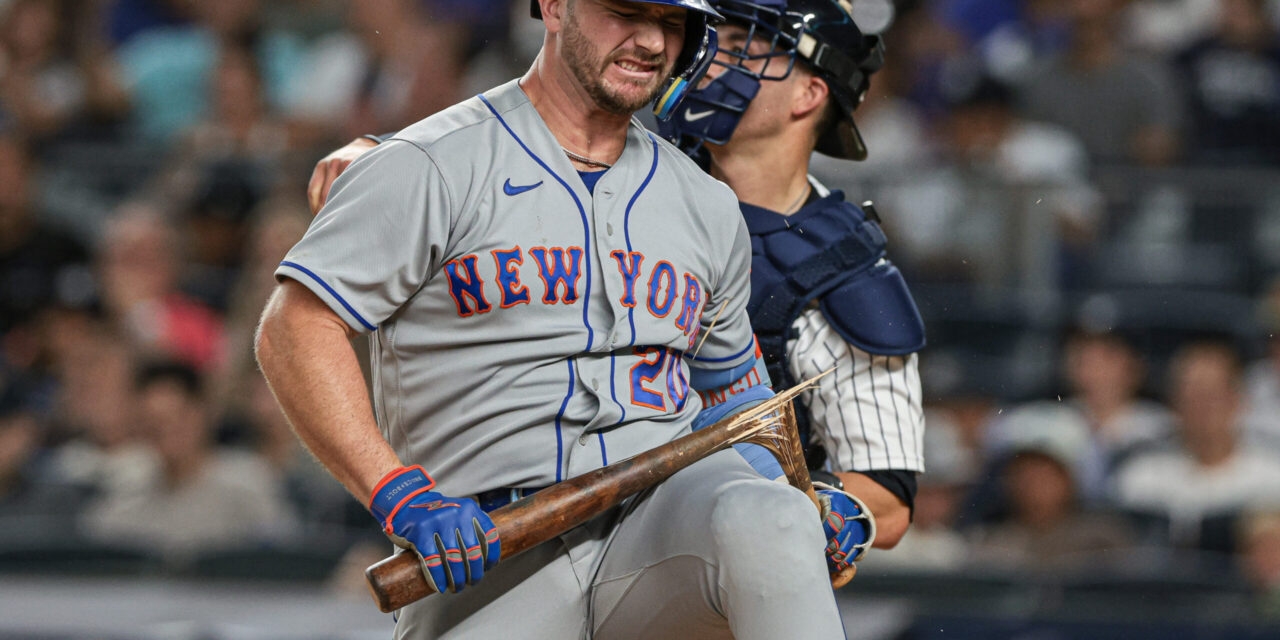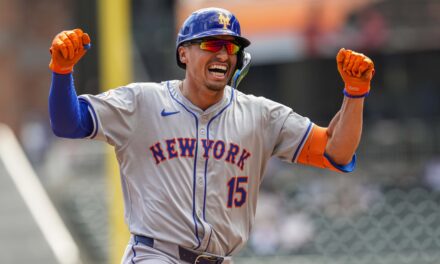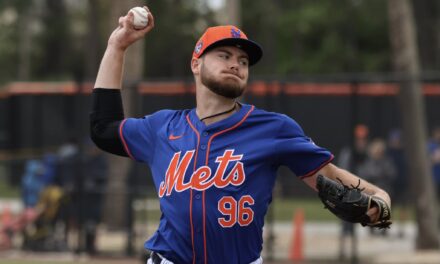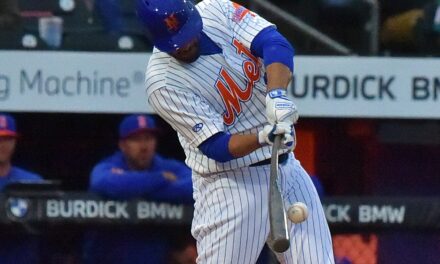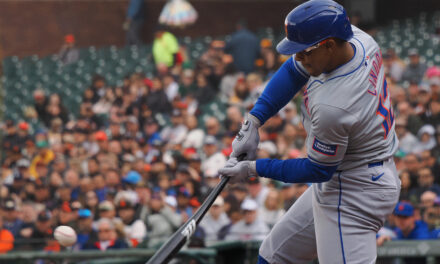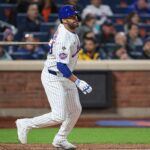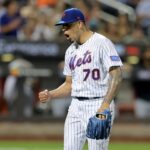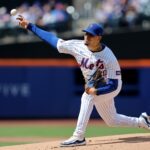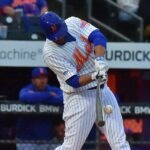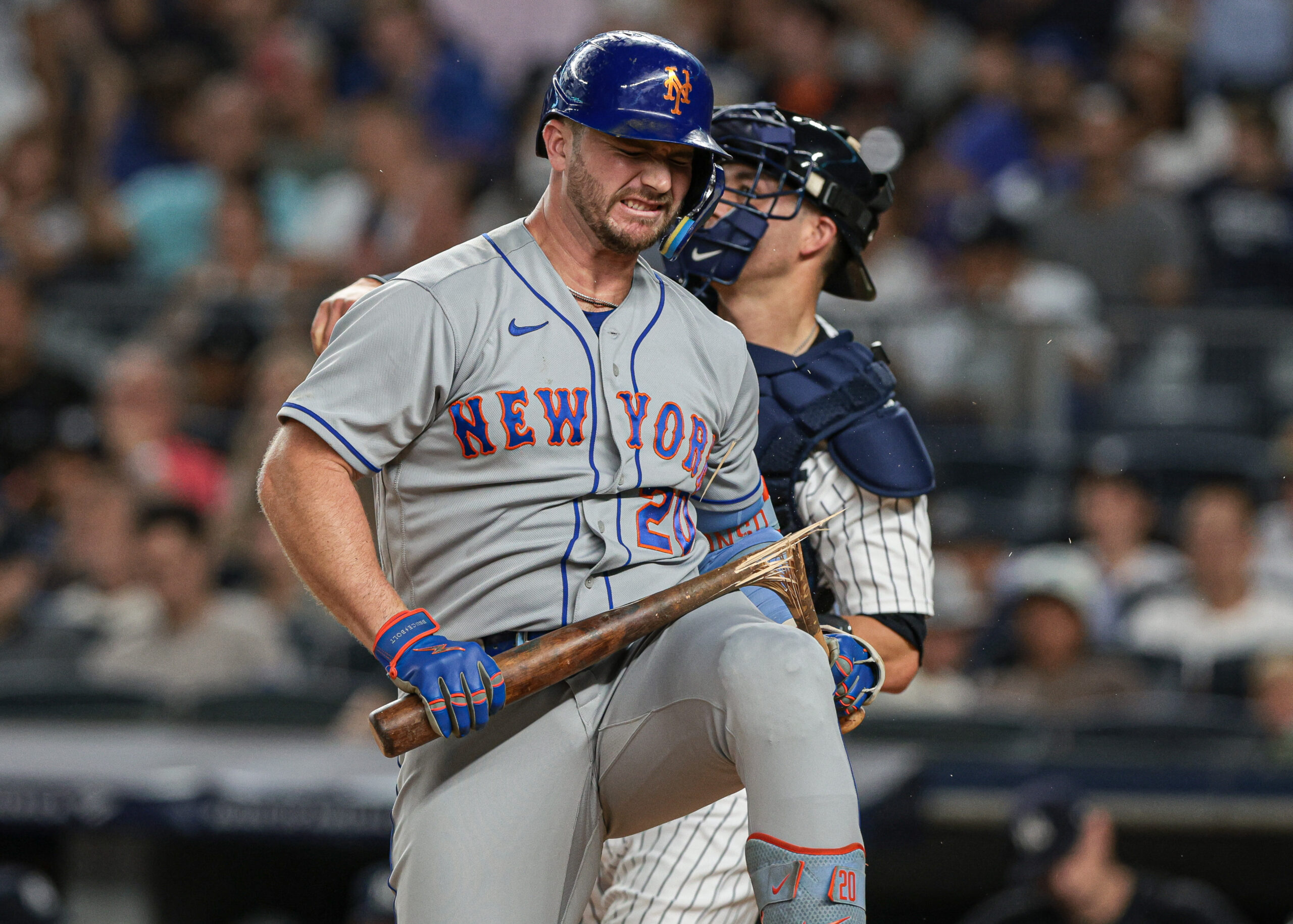
Credit: Vincent Carchietta-USA TODAY Sports
It has been just under a week since the New York Mets saw their 2022 season brought to a sudden and bitterly disappointing end, and the search for answers continues with the meat still being picked off the bones in the aftermath of the wreckage.
One of the burning questions to emerge from the autopsy on what went wrong is the offense and what now needs to be done to ensure that the Mets maximize their current window to win and compete for a World Series in 2023. But the answers seem complicated given that the offense not only failed in the postseason but also in critical points during the regular season.
While Jeff McNeil won the batting title, Pete Alonso had his most productive year since his rookie season, and Francisco Lindor emerged as the superstar shortstop we all know he is, the offense overall showed some very clear and alarming flaws that ultimately proved to be the undoing of this team in the Wild Card against the San Diego Padres.
Under manager Buck Showalter, the Mets played an old-school style of baseball by trying to create and manufacture runs by generating contact, putting the ball into play, and being smart on the base paths. Bunting, that oh-so-fading art, was a weapon that was also frequently used by this team. Starling Marte was signed largely for his ability to put the ball into play and his excellence when it came to stealing bases, while the likes of Eduardo Escobar and Mark Canha were also brought to Queens to help the run game.
For the most part, it worked. Brandon Nimmo proved himself as an elite leadoff guy, Marte came as advertised, and the likes of Alonso, Lindor, and McNeil did a fine job of driving in runs using a lethal blend of power and smart hitting. Escobar also showed just how key a piece he can be with a red hot September after what was largely a mixed first year in Queens.
However, there were red flags when it came to this offense. The bats went cold too many times in key spots, and the lineup was screaming out for more power in the buildup to the Trade Deadline. With the catcher position needing a serious upgrade and with Cubs catcher Willson Contreras available, general manager Billy Eppler had a real opportunity to make a huge splash in his first year in the job and set the Mets on the right path for the World Series.
Instead, they remained conservative and while the addition of Daniel Vogelbach largely worked out (until the playoffs), the Darin Ruf experiment was a huge dud, and the failure to add another real power bat or two to the lineup proved fatal. The call-ups of phenom prospects Brett Baty and Francisco Álvarez proved to be a case of too little, too late, and Marte going down hurt for the stretch run also caused major problems.
As a result, the offense vanished in the crunch series with the Braves with the National League East division on the line, putting up a total of just seven runs in three games, and that lack of pop in the lineup ultimately cost the Mets the division. Then, in the Wild Card round against the Padres, the offense again failed to come up in a big spot.
They went 1-for-11 with runners in scoring position in Game 1 and also left 15 runners on base. And, while they did carve out an offensive bounce back in Game 2, the Mets couldn’t sustain that in Game 3, and they put up just one run in seven innings against Padres starter Joe Musgrove, which sealed their fate. In total, they scored a combined total of eight runs across the three games, and that just isn’t going to cut the mustard, especially in the postseason, where the margins are razor-thin.
Also, it has been proven time and time again during this year’s playoffs alone that the long ball reigns supreme. The Mets failed to hit enough long balls, they failed to hit situationally, and the lack of power was the driving force behind why so many runners were left on base. At the end of the day, it is hard to string together hits in the postseason, and teams win with the home run. Instead, the Mets failed to adapt, and they went down with the ship in regards to sticking with a philosophy that just isn’t as effective in October.
The Cleveland Guardians ranked 29th in home runs during the regular season and won their Wild Card series thanks to the long ball, proving that you need a big blow in order to win in the postseason. It is no coincidence that the one game the Mets did win in the Wild Card series was down to hitting homers in critical situations. The Mets just aren’t built that way, and that’s why Eppler’s failure to go out and add another big bat at the Trade Deadline will go down as a major black mark on his record as Mets GM.
In terms of looking ahead, and while there’s a lot of work to be done this winter, there is no doubt that one of the biggest priorities for the front office should be going out and retooling this offense to ensure that it can work just as well in October as it does throughout the regular season. There is nothing wrong with the Mets’ hitting philosophy during the regular season, but they need the tools at their disposal to be able to change it up come the postseason.
That means adding another power bat or two to the heart of the lineup. This team needs way more production from the catcher position and from the DH spot, and owner Steve Cohen may need to splash the cash to go out and sign two big hitters that can make a difference in October. You can’t just hope that Álvarez and Baty break out in their first full season in the majors, instead, you need to surround them with talent and let them develop at their own pace. This lineup is guilty of being too top-heavy in terms of power, and some of that pop needs to spread around, so 1 through 9 contributes on a daily basis. Especially in the postseason.
Also, as it is currently constituted, this lineup needs more speed. While Lindor and Marte are able to run the base paths and steal at a high level, the Mets could do with another speedster in the heart of that lineup. A player in the ilk of Trea Turner would be perfect, given that he would really help get runners on base and set it up for the long ball to thrive in the postseason.
Overall, this offense isn’t set up to succeed in October. That was proved emphatically in both the series loss to the Braves in the regular season and then in the Wild Card against the Padres. You can’t just string runs together methodically in the postseason. Instead, you need plenty of power and pop, big hits in key spots, and the ability to move runners around to land the big blow, just as the Padres did time and time again. If the front office can address those key needs and reshape this offense somewhat so that it can succeed in playing October ball, then maybe, just maybe, the Mets can rebound in 2023 and live up to expectations.


